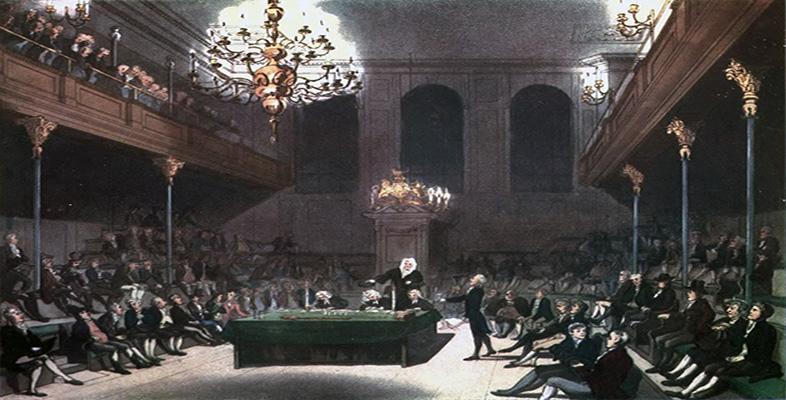4.4 Political implications
In chapter VI of A Practical View Wilberforce broadens his perspective from the primarily spiritual emphasis of the earlier chapters to a consideration of the political implications of his analysis. In so doing he contributed to the ongoing debate on the French Revolution and the changing nature of British society and politics.
A Practical View can usefully be compared here with another work that gave considerable prominence to religion in the aftermath of 1789, Edmund Burke’s Reflections on the Revolution in France (1790). To Burke the revolutionary attack on the Roman Catholic Church was one of the most disturbing features of events across the Channel, because he saw the Church as a key upholder of the continuity and tradition that he believed essential to duly regulated liberty and a safeguard against anarchy. What was important was not so much what the Church taught, but that it should remain as a source of institutional stability. The extent of Burke’s alarm on this score in 1790 might seem exaggerated, because the anti-Christian phase of the Revolution was still in the future. However, to Burke, even the Civil Constitution of the Clergy went much too far because it subverted the traditional nature of the alliance between Church and State by making the former clearly subordinate to the latter. A reformed, slimmed-down and government-controlled Church would be in no position to serve as the institutional brake on ill-considered change that Burke passionately believed to be necessary.
Click to view A Practical View, chapter VI [Tip: hold Ctrl and click a link to open it in a new tab. (Hide tip)]
Exercise 3
Now read the extract from A Practical View, chapter VI, up to '... take up with superficial appearances' (pp. 277–8). On the basis of the summary of Burke’s views, in what respects do you think Wilberforce (1) agrees with Burke and (2) disagrees with him?
Discussion
-
Wilberforce strongly agrees with Burke in respect of the crucial importance of religion in general, and Christianity in particular, for political stability. You will probably have been struck by the way in which he just asserts this position, while saying ‘there can be no necessity for entering into a formal proof of its truth’, an indication of the extent to which it reflected a consensus among his contemporaries.
-
Unlike Burke, Wilberforce does not feel that the mere maintenance of traditional religious institutions is sufficient. He is worried that a decline in committed Christianity will lead to adverse political consequences and hence that Christian revival is essential for political security. (It is interesting to note that Burke, who died in 1797, read A Practical View on his deathbed, found it comforting, and wanted to thank Wilberforce for writing it; an indication that he had become receptive to Wilberforce’s perspective.)
